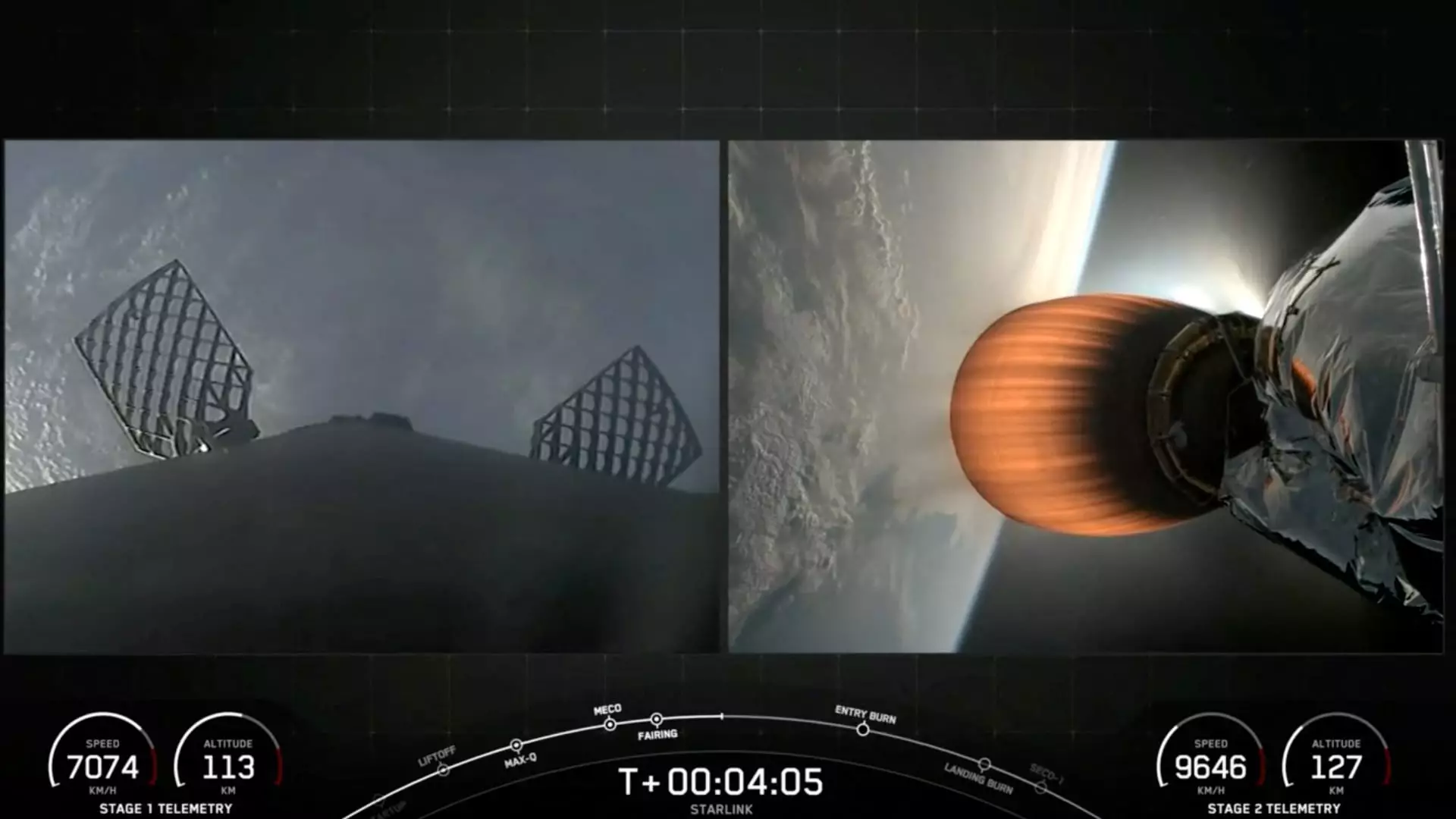SpaceX’s Falcon 9 rocket recently faced a setback, causing the company to ground the vehicle pending an incident investigation. This inflight failure during the “Starlink Group 9-3” mission is a rare occurrence for SpaceX, which has maintained a remarkable record of success over the years. The incident involved the upper second stage of the rocket failing to reignite its engine as planned, leading to the destruction of the payload. SpaceX CEO Elon Musk confirmed the anomaly but stated that the exact reasons for the engine failure are currently unknown.
Following the incident, the Federal Aviation Administration (FAA) has been involved in overseeing SpaceX’s investigation and will need to approve the final report and any corrective actions. This regulatory oversight highlights the seriousness of the situation and underscores the need for transparency and accountability in the aerospace industry. Grounding the Falcon 9 until the investigation is complete is a standard precautionary measure to ensure the safety and reliability of future missions.
The investigation into the Falcon 9 incident is expected to delay upcoming launches, including two crewed missions: the private Polaris Dawn and NASA’s Crew-9. This delay could have ripple effects on the overall launch schedule and may necessitate adjustments to accommodate the investigation’s findings. Despite successfully deploying 20 Starlink satellites, SpaceX noted that the engine failure resulted in placing the satellites in a lower-than-intended orbit.
In an effort to salvage the situation, SpaceX made contact with 10 of the affected satellites to utilize their onboard thrusters to climb higher in orbit. However, the company acknowledged that the satellites will not be fully recovered due to the challenging environment caused by the lower orbit. As a result, the satellites are expected to re-enter the Earth’s atmosphere and burn up, posing no threat to other satellites or public safety.
The Falcon 9 rocket has enjoyed a remarkable track record of success, with over 300 consecutive successful orbital launches prior to this incident. SpaceX’s ability to land and reuse rocket boosters has been a game-changer in the space industry, contributing to cost savings and increased efficiency. However, this recent mishap serves as a reminder of the inherent risks associated with spaceflight and the need for continuous vigilance and improvement in safety protocols.
While setbacks like the Falcon 9 incident are rare, they serve as valuable learning opportunities for the aerospace industry. By conducting thorough investigations, implementing corrective measures, and prioritizing safety above all else, SpaceX and other space companies can continue to push the boundaries of space exploration while ensuring the integrity and reliability of their missions.

